This post was updated April 9 at 9:41 p.m.
UCLA community members discussed California’s role in protecting LGBTQ rights at the Williams Institute’s annual update conference last Friday.
Titled “The Golden State of LGBTQ Rights: California’s Role in Advancing LGBTQ Policy,” the conference was open to participants at the UCLA School of Law and over Zoom. The half-day conference consisted of three panels, including discussions on Los Angeles County policy, immigration and the education of LGBTQ students. The panels were followed by the final round of the institute’s moot court competition and a reception.
Brad Sears, the institute’s founding executive director, said in his opening address that the consequences of anti-LGBTQ movements are felt locally in California. The conference aimed to look at the relationship between state and national labor laws and trends, he said.
“We are very lucky to live in a state with strong protections,” Sears said. “But it also serves as a very diverse microcosm of the entire country and world in some ways and as a role model in other ways for what is possible.”
The opening panel, “Living LGBTQ in Los Angeles: State of the County,” discussed recent research by the institute about the current barriers local LGBTQ communities face. The panel was moderated by Elana Redfield, the institute’s federal policy director.
At the beginning of the first panel, Kerith Conron, the institute’s research director, presented a slideshow featuring combined statistics from an annual county survey and the institute’s own survey. She discussed how LGBTQ adults reported experiencing higher levels of verbal harassment and employment discrimination as well as concern for their public safety.
Toni Newman – an author, LGBTQ rights advocate and the director for the Coalition for Justice and Equality Across Movements – said during the panel that there are more than 503 legal policies targeting transgender and gender non-conforming individuals.
“When they go to court to keep us out, we go to court to get back in,” Newman said. “That’s the way to beat them in my mind. And that’s why I’ve studied the law. This is why I’m here today.”
The panelists agreed that an instrumental way to make a beneficial difference in the lives of LGBTQ individuals is to vote. Darryn Harris – the chief government affairs and community relations officer for St. John’s Community Health – added that he believes there is the potential to make significant progress for the LGBTQ community in the November elections.
During a second panel discussing the impact of state laws and services on LGBTQ schoolchildren, Naomi Goldberg, Amanda Goad, Kevin Goodman and Rev. Benita Ramsey discussed the contrast between how California and other states support LGBTQ students.
Goodman, an assistant director of UCLA’s LGBTQ Campus Resource Center, said LGBTQ students need more encompassing care in colleges. He said many LGBTQ individuals were forced back into unsafe and unhealthy living situations during the pandemic, which prevented them from being their authentic selves while also hindering their social and emotional learning.
“When we both center the specific, unique needs of this population but not reduce them to victims and think about them as wealths of knowledge and experience and courage that can inform how we can best serve the whole population,” they said. “I think that’s how higher education institutions will thrive.”
Goad, the Audrey Irmas Director of the LGBTQ, Gender & Reproductive Justice Project at ACLU of Southern California, said the LGBTQ community exists in a time of uncertainty because of anti-LGBTQ policies passing in some states and the subsequent challenging of them.
When moderator Christy Mallory, the legal director for the Williams Institute, asked what LGBTQ joy means to them, the panelists mentioned the courage of young people, the joys of found community and the love of chosen family.
For the final panel, scholars discussed the impact of foreign and immigration policy on LGBTQ rights in the United States.
Talia Inlender, the deputy director for the UCLA Center for Immigration Law and Policy, said there was an almost 30% increase in individuals globally immigrating compared to the last decade, adding that there were 281 million international migrants in 2021. She said migrants in particular often flee targeted persecution in their home countries.
“It’s so important to understand that we have consistently failed to provide safe and viable pathways for people seeking protection, like LGBTQIA migrants, for families trying to reunify, for people who are seeking opportunities,” Inlender said.
She added that because of border restrictions, migrants seeking homes in the U.S. often become stuck in Central America as well as bordering countries like Mexico, where they can face many of the same dangers as those in their home countries.
Panelists also discussed methods of pushing back against discriminatory border restrictions. Kennji Kizuka, the director of asylum policy for the International Rescue Committee, added that sublegislative administrators have tried to use parole authority to increase safe immigration routes.
However, Miguel Fuentes, a research and data analyst for the Williams Institute, said during the panel that while provisions to protect LGBTQ global integration could lead to progress, more steps need to be taken to spread awareness about policy implementation.
Following the panels, the institute hosted the last round of a national moot court competition dedicated to sexual orientation and gender identity law. Law student competitors wrote appellate briefs on present topics and presented them before a panel of judges.
Jack Feng, a doctoral student in epidemiology, said he attended the conference on behalf of the UCLA Center for LGBTQ+ Advocacy, Research & Health to learn more about ways to support LGBTQ students based on the experience of community members doing groundwork in the field.
Conference attendee H. Landeros, a graduate student in student affairs who has published research with the institute, added that the second panel’s closing discussion regarding LGBTQ joy was their favorite part of the conference.
“I love that no matter what queer students, queer people are going through, at the end of the day, there’s such an importance on queer joy and community within ourselves,” Landeros said. “No matter what, we’re always going to find each other and support each other.”
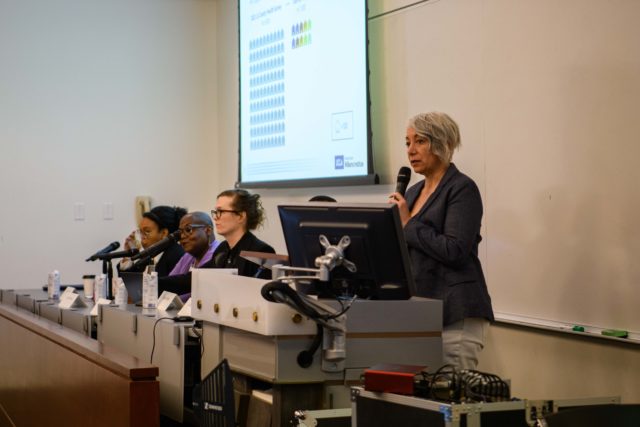

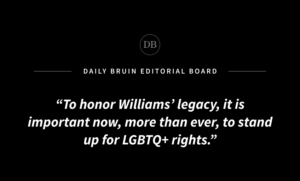
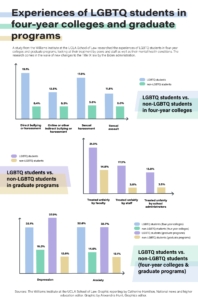
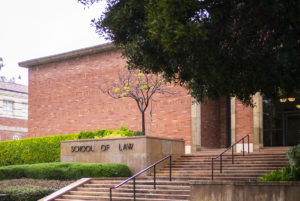
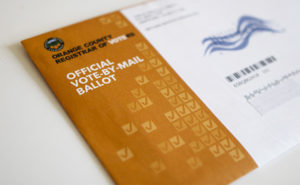
Comments are closed.